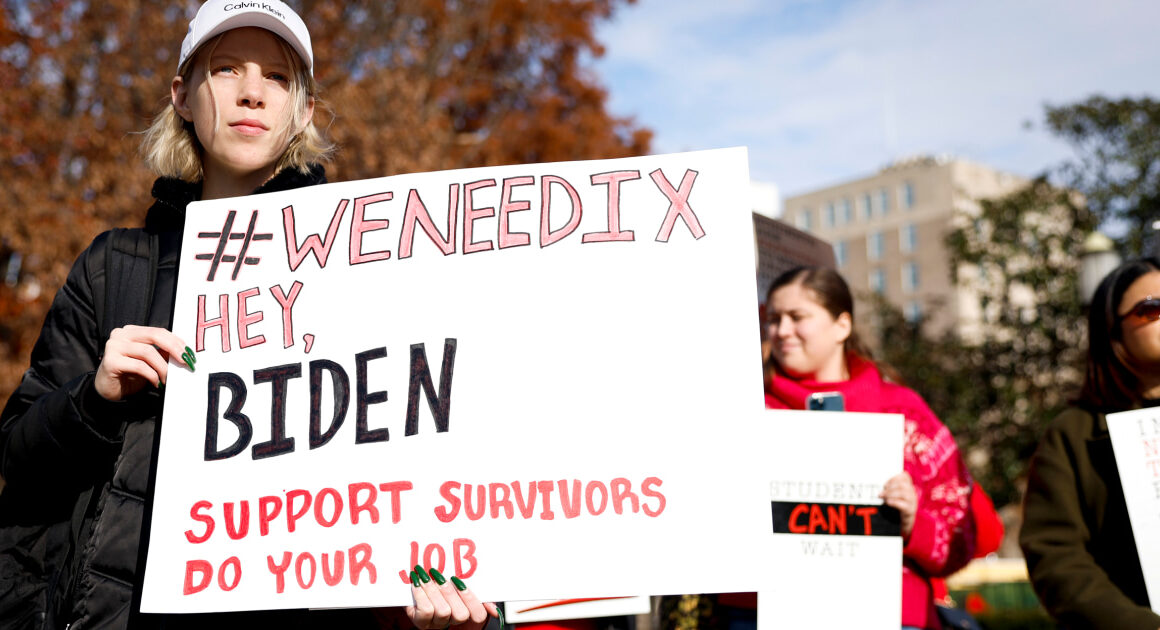WASHINGTON — The Supreme Court on Friday barred the Biden administration from enforcing parts of a major regulation on sex discrimination in education that is embroiled in litigation over its protections for transgender students.
The court rejected a request from the administration to allow less contentious parts of the regulation, many of which have nothing to do with gender identity, to go into effect in states where it has been challenged while lower courts wrangle over the contentious transgender issues.
“On this limited record and in its emergency applications, the Government has not provided this Court a sufficient basis to disturb the lower courts’ interim conclusions that the three provisions found likely to be unlawful are intertwined with and affect other provisions of the rule,” read the Supreme Court’s opinion.
Solicitor General Elizabeth Prelogar had not asked the court to block lower court rulings that prevented the enforcement of provisions that would allow transgender students to use restrooms that correspond with their gender identity or could lead to affected people being required to use a transgender person’s preferred pronoun. Those requirements remain on hold in the affected states.
The Supreme Court action does not affect states that did not challenge the regulation, and they will remain covered by the rule.
Liberal Justices Sonia Sotomayor, Elena Kagan and Ketanji Brown Jackson were joined by conservative Justice Neil Gorsuch in dissenting in part from the majority’s order.
“By blocking the Government from enforcing scores of regulations that respondents never challenged and that bear no apparent relationship to respondents’ alleged injuries, the lower courts went beyond their authority to remedy the discrete harms alleged here,” Sotomayor said in the dissent. “The injunctions this Court leaves in place will burden the Government more than necessary.”
The regulation at issue was finalized by the Education Department in April and applies to any educational entities that receive federal funding.
In addition to recognizing protections for transgender students, the rule includes other provisions that were not challenged, including new measures relating to pregnant and postpartum students and employees. The regulation, for example, requires access to lactation spaces and restrooms for pregnant students.
A total of 26 states challenged the rule, with 22 obtaining lower court rulings that prevent the administration from enforcing it fully.
The Supreme Court action concerned challenges in two separate cases, one filed in Kentucky and the other in Louisiana, which had succeeded in blocking the entire suite of regulations in their states.
A group of six states led by Tennessee, as well as some individual plaintiffs, sued in Kentucky, while Louisiana led the other lawsuit, which includes three other states and various local jurisdictions.
In both cases, federal judges blocked the entirety of the regulation as it applies to the plaintiffs, and appeals courts declined to narrow the scope of the injunctions, prompting the administration to turn to the Supreme Court.
Prelogar wrote in court papers that the lower court judges were wrong to block provisions that the challengers had not even focused on.
Furthermore, she argued that the Education Department’s conclusion that gender identity is protected under Title IX should be left in place because it is what she called a “straightforward application” of the Supreme Court’s 2020 ruling that found gender identity was protected under the similarly worded Title VII law that covers employment discrimination.
The challengers countered in court papers that the entire rule should be blocked because, as Louisiana Attorney General Elizabeth Murrill said in her filing, “the rule’s redefinition of sex discrimination pervades all 423 pages.”
,








